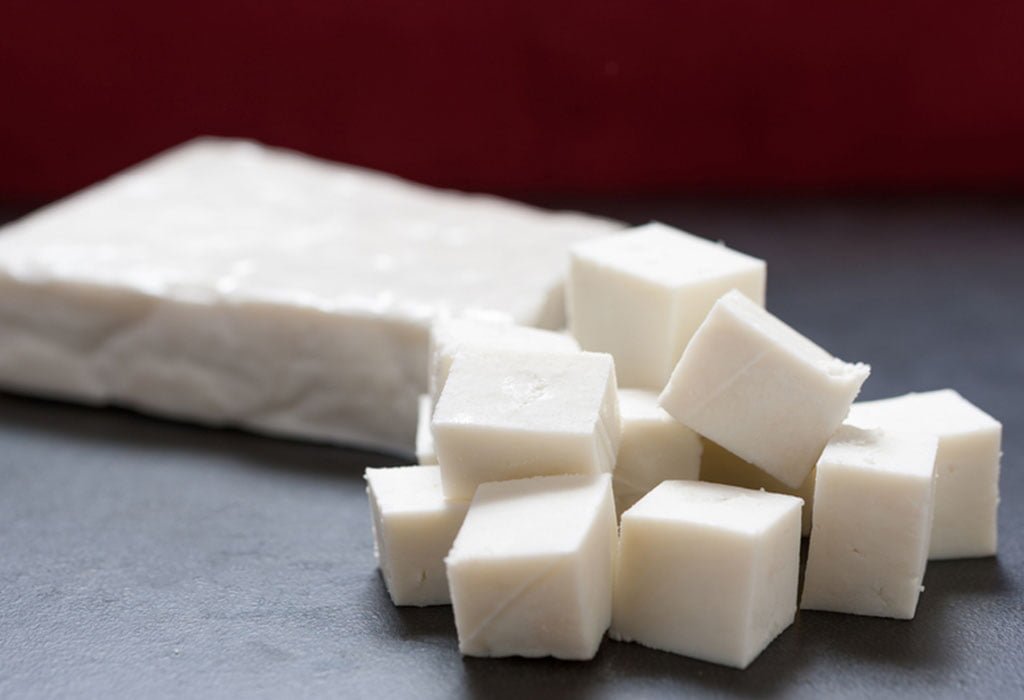Paneer is an essential part of Indian cuisine. It is enriched with minerals and nutrients to provide you plethora of benefits to your health. Paneer nutrition is mostly considered by vegetarians who are not able to get a high amount of protein from other sources, like chicken. Moreover, paneer is rich in protein.
Paneer is prepared by curdling hot milk using lime juice, vinegar, or citric acid. After this process, the curd is filtered with a muslin cloth. To create slabs, it is weight pressed. The name of the paneer comes from Persian ‘panir’ and its origin has been attributed to Afghan, Iranian, Portuguese invaders and settlers.
In India, paneer is famous food that is used in various recipes, and it is an important part of Indian cuisine. Paneer price will vary according to the brand and quality of paneer.
Paneer Nutrition Facts
Vegetarians don’t get a sufficient amount of protein because they can’t eat chicken. Paneer is packed with protein along with potassium and selenium. Selenium is good to treat infertility problems, and potassium is effective for the nervous system. Paneer nutrition also contains calcium that helps in enhancing bone strength. If you are taking 100g of paneer, then paneer nutrition facts would be like this:
- Total fat: 26.9 g
- Cholesterol: 56.2 g
- Iron: 2.16 g
- Calcium: 420 g
- Sodium: 22.1 g
- Saturated fat: 18.1 g
- Protein: 19.1 g
- Sugar (added): 0.0 g
- Vitamin A: 210 mcg
- Total carbs: 6.1 g
All of the above is paneer nutrition value, so you can consume paneer accordingly.
Paneer Calories
Paneer calories are 265 in 100 g paneer if it is made from full-fat milk. If you want to intake more calories with less food consumption, then you can go for paneer. Paneer makes you feel full and minimizes appetite. Paneer calories also depend on how you cook. So, you can eat it raw, bake or grill it. If you want to gain weight, then you can add veggies and oil to it.
Fat in Paneer
There is approximately 27 g of fat in 100 g paneer. Paneer is also a good source of saturated fat and monounsaturated fat (MUFA). Bad cholesterol in the blood can be lower with the help of monounsaturated fats. Paneer nutrition also consists of omega-3 polyunsaturated fat and alpha-linoleic acid that can prevent cardiac disease.
Protein in Paneer
Paneer is packed with protein. It has a high nutritional value. If it is made from cow’s milk, protein in 100 g paneer will be 18.3 g, 2.6 g minerals, 20.8 g of fat, and 1.2 g of carbs. It also contains a sufficient amount of selenium and calcium. Paneer offers plenty of health benefits to an individual.
Health Benefits of Paneer
The following are some health benefits of eating paneer:
Minimizes the Risk of Breast Cancer
Breast cancer is increasing, especially in unmarried and pre-menopausal women. Paneer has vitamin D and calcium, both can minimize the chance of breast cancer.
Boost Bone and Teeth Strength
Paneer is rich in calcium, and calcium is best for teeth and bones. Despite this, calcium can improve the functioning of the nervous system and keeps the heart healthy.
Helps in Weight Loss
It is good news for those who are fitness lovers. Paneer helps you in reducing weight as it is rich in protein that can make you feel full for a long time. But make sure not to eat too much. Apart from this, it contains fatty acids that can help you in burning a lot of fat.
Improves Digestive System
Paneer contains magnesium and phosphorus. Phosphorus helps in improving the digestive system. And magnesium has a laxative effect that prevents constipation problems.
Good for Diabetic Patients
Are you suffering from diabetes, no sweet? Well, paneer is for you. The magnesium in paneer can help you in maintaining and regulating blood sugar levels. It also helps in improving heart health and the immune system.
For Glowing Skin
Paneer is good for glowing skin. As you know, paneer contains selenium and other vitamins that can help a person to have glowing skin.
Minimize Body and Joint Pain
If you are suffering from lower back pain, then you must try paneer once. Paneer can reduce body and joint pain. Paneer has omega-3 and omega-6 fatty acids that help in fighting against arthritis.
For pregnant women, paneer is beneficial as it can minimize the risk of stillbirth and disorders.
Difference between Cheese and Paneer
| Cheese | Paneer | |
| 1. | Cheese is made from milk that involves the process of acidification. | Paneer is made by curdling heated milk by including lemon juice, or vinegar, etc. |
| 2. | Cheese consists of more fat and calories as compared to paneer. | Paneer consists of less fat and calories as compared to cheese. |
| 3. | You can store cheese for a long period of time in the freezer, around 2 to 6 months. Or six weeks if the cheese packet is opened. | You can’t store paneer for a long time in the freezer. You can store it for around 1 to 2 days. |
| 4. | The preparation of cheese includes emulsification. | The preparation of paneer doesn’t include emulsification. |
| 5. | Cheese has more calcium and protein as compared to paneer. | Paneer has less calcium and protein as compared to cheese. |
| 6. | Some popular recipes include cheese: cheese pasta, cheese pizza, cheese fondue, etc. | Some popular recipes include paneer: mattar paneer, shahi paneer, kadai paneer, etc. |
Conclusion
In this blog, you have learned about paneer nutrition value, the benefits of paneer, and calories in paneer, etc. Like any other food, paneer contains nutrition that the body requires. You can get the most out of it by using it in your daily diet plan. Paneer also contains folate, which is good for pregnant women.
















